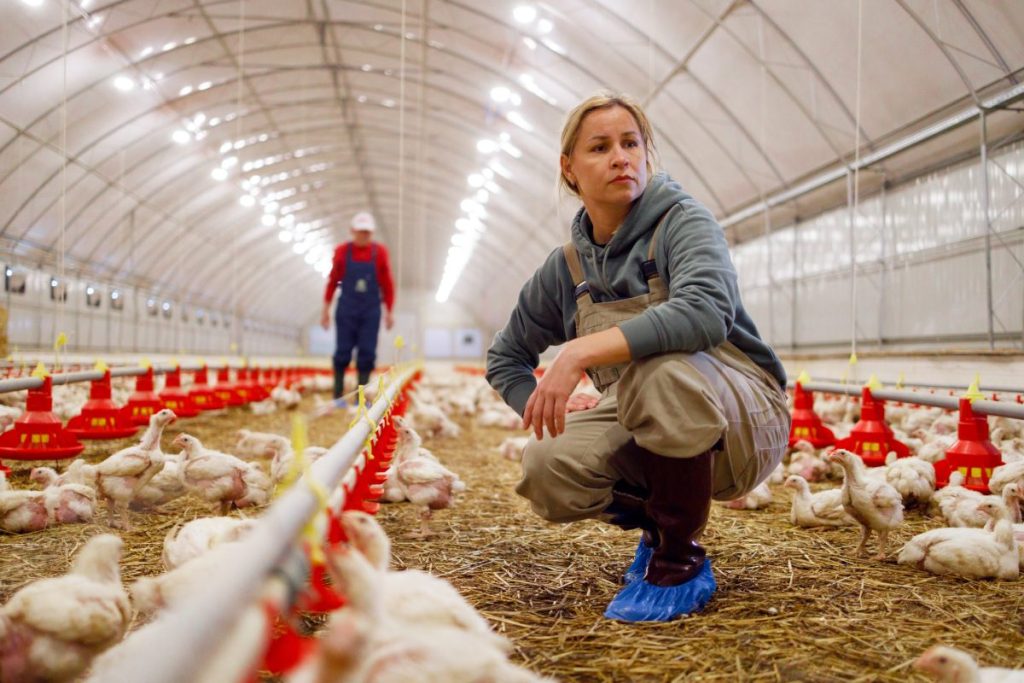China lifts poultry import ban on Brazil
China lifts ban on Brazilian poultry imports after avian flu case
China had to ban the import of frozen chicken from Brazil in May 2025 but the ban has been repealed effective immediately on the basis of risk analysis results, the Chinese customs agency said in the notice, which was released on Friday but dated October 31.
China had to ban the import of frozen chicken from Brazil in May 2025 because of the outbreak of bird flu (avian influenza) on a commercial poultry farm in Brazil. the ban affected direct and indirect import of poultry products from brazil due to the avian influenza, Brazil poultry ban was implemented to prevent the spread of the disease, as China is Brazil’s largest customer for chicken meat and a major global importer
bird flu (Avian influenza) is a contagious viral disease that affects birds and can also infect other animals as well as humans. Caused by influenza A viruses, it ranges in severity from mild to life-threatening depending on the strain and the species affected. While most infections are found in wild and domestic birds, high-pathogenicity strains can be deadly to poultry, and some strains have a potential for human infection, China had been Brazil’s leading destination for chicken meat before the ban
In birds
Symptoms: Signs of bird flu in poultry can include sudden death, swelling, respiratory issues, loss of appetite, diarrhea, and a drop in egg production.
Pathogenicity: Strains are categorized by how severe they are in birds:
Low-pathogenicity avian influenza (LPAI): Often causes mild or no symptoms.
Highly pathogenic avian influenza (HPAI): Extremely deadly to domestic poultry and can spread rapidly through a flock.
Transmission: The virus spreads easily among birds and can be a major threat to the poultry industry. In other animals and humans
Other animals: The virus can spread to other animals, such as mammals, including marine mammals, cats, and even dairy cattle.
Human infection: While rare, human infections can occur, most often after close contact with infected animals or contaminated environments.
Symptoms in humans: Human symptoms can vary from mild to severe and include fever, cough, sore throat, muscle aches, and shortness of breath.
Prevention: To prevent infection, it is recommended to avoid contact with wild or domestic birds, avoid live bird markets, and cook poultry and eggs thoroughly before eating. China lifts poultry import ban on Brazil.
The ban has been lifted repealed effective immediately “on the basis of risk analysis results,” the Chinese customs agency said in the notice, which was released on Friday but dated October
Brazil, the world’s largest poultry exporter and China’s biggest chicken meat supplier, confirmed a bird flu outbreak on a commercial poultry farm in mid-May, triggering a slew of international trade bans.
The South American country exported chicken meat worth some $10 billion (C$14.1 billion) in 2024, accounting for about 35 per cent of global trade, making a nationwide ban painful not only for Brazilian farmers but also major importers.
China resumes Brazilian chicken imports after bird flu ban lifted, Brazil regained access to its largest poultry market after China lifted a months-long avian-flu ban, following intensified sanitary measures and diplomatic measures
Brazil on Friday celebrated Beijing’s move to reopen its market to Brazilian poultry, ending months of restrictions triggered by a bird flu incident earlier this year. The suspension, imposed in May by both China and the European Union after Brazil confirmed its first case of highly pathogenic avian influenza on a commercial farm in Rio Grande do Sul, had temporarily halted shipments from the world’s top chicken-exporting nation.
Brazil declared itself clear of avian flu in June and immediately began pressing foreign partners to limit or lift embargoes. In the following months, sanitary authorities intensified inspections, and a Chinese technical delegation carried out on-site evaluations of farms, slaughterhouses, and laboratories in September, steps that proved crucial for reopening negotiations. According to the Brazilian Animal Protein Association (ABPA), international partners have been gradually returning.
China had been Brazil’s leading destination for chicken meat before the ban, with 228,200 tons imported between January and May, generating $545.8 million in revenue, ABPA figures show. During the suspension, Brazil saw a temporary buildup of domestic supply and a drop in shipments to its main markets, though other buyers eventually eased their own restrictions.
The update comes as avian flu continues to surface in various parts of the world, forcing widespread culling, affecting food prices, and raising global biosecurity concerns. Researchers noted that rapid detection in Brazil helped prevent wider spread, while the World Health Organization warns that human infections can cause severe illness with high mortality. Still, the virus remains primarily linked to direct contact with infected animals or contaminated environments and is not known to transmit easily between people.
Explore for more at https://frozenlivestockexperters.com

